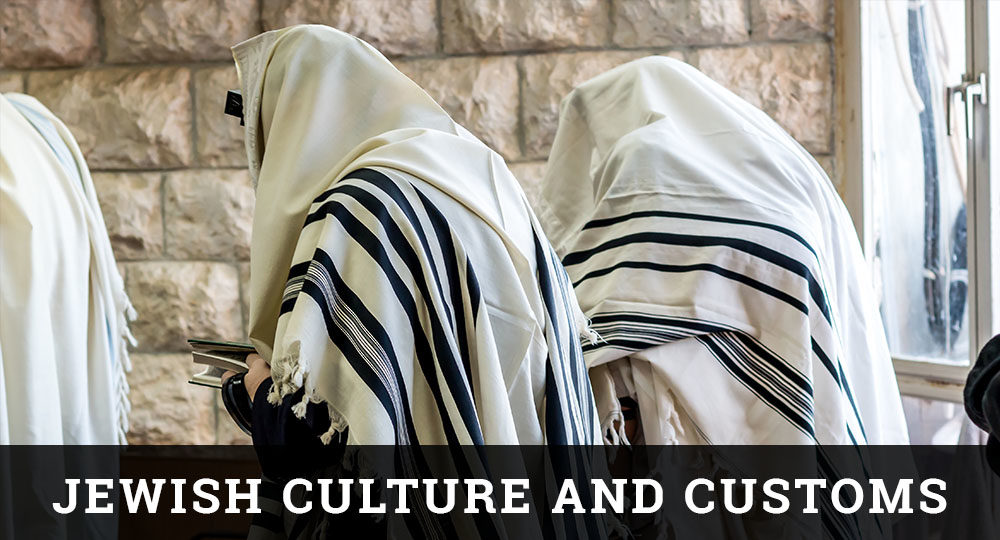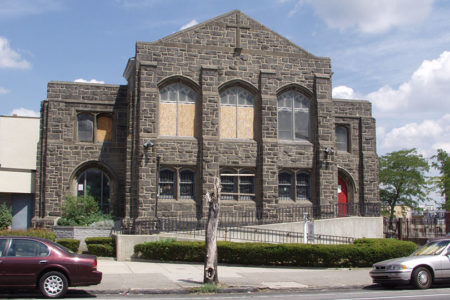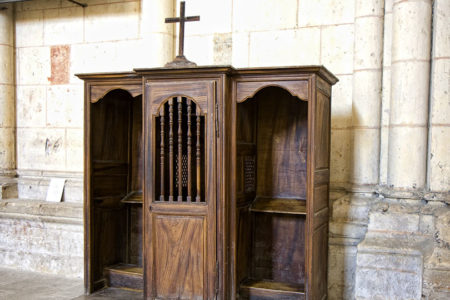Blessings on Your Head
At the beginning of the movie Fiddler on the Roof, Jewish people in the little Russian village of Anatevka ask their rabbi if there is a special blessing for the czar. The czar ruled the country and was no friend to the Jewish people. The rabbi ponders a moment, then breaks into a huge grin as he replies, “A blessing for the czar? May the Lord bless and keep the czar [short pause] far away from us!”
As most Jewish people know, Judaism has a barukha(blessing or benediction) for just about everything. For devout Jews, worship of the one true God is woven into every aspect of their lives. He is considered the Creator and Sustainer of all life and the One who holds the universe in the palm of His hand. It is said that the word blessing “is not a verb describing what we do to God; it is an adjective describing God as the source of all blessing.”1
A blessing is viewed as a reminder of the incredible, awesome power of the Lord and as a declaration of the desire for Him to use that power for good. Barukhas, or barukhot (Hebrew plural), are good. Jewish tradition states that a person should recite one hundred barukhot each day. Thus there is no shortage of them in and out of the Jewish Scriptures.
The Hebrew word barukha comes from the verb brkh, which means “to fall on one’s knees.”2 It is a built-in reminder to the Jewish people of man’s position in relationship to God.
Jewish Scripture overflows with barukhas. Genesis 24:27 records the barukha of Abraham’s servant when he spotted Rebekah, the future bride for Isaac, Abraham’s son: “Blessed be the LORD God of my master, Abraham, who hath not left destitute my master of his mercy and his truth.” Exodus 18:10 records the barukha of Jethro, Moses’ father-in-law, when he said, “Blessed be the LORD, who hath delivered you out of the hand of the Egyptians.” Ruth 4:14 records the women’s barukha over Naomi when they realized there was a near kinsman who could marry her widowed daughter-in-law, Ruth: “Blessed be the LORD, who hath not left thee this day without a kinsman, that his name may be famous in Israel.” These are but a few of the barukhas in the Bible.
A familiar barukha is often heard when someone sneezes. Most Jewish people nearby will immediately offer up a “God bless you” or “Gezundheit,” (“to your health”). Jewish legend associates the sneeze with life and death. Genesis 2:7 says God blew into Adam’s nostrils “the breath [soul] of life.” Since the nostrils are the portals through which life enters and departs, this blessing expresses the desire that God continue to sustain the sneezer.
Barukhas are key in the prayer lives of Jewish people. Although they can be recited when you’re alone, most blessings are recited in a gathering of at least ten people (a minyan).
Blessings
in the Morning
Jewish observance requires that each day start with the recitation of blessings. The day begins with the blessing for washing the hands and continues with the blessings for God’s creation and sustenance and for the privilege of beginning a new day. During the day there are blessings for the study of Torah. Here are some examples:
Barukh Hu
The leader of the congregation begins the prayer by saying, “BarkhuetAdonai ha-mevorah” (“Bless the Lord who is blessed”). The congregants respond by bending their knees and saying, “Blessed is the Lord who is blessed for eternity.”
Barukh She-amar
The daily morning service includes the recitation of the Barukh She-amar (“Blessed be He who spoke”). It begins a prayer, wrote scholar Philip Birnbaum, “composed of eighty-seven words, a number suggesting the numerical value of [the Hebrew word for] refined gold.”3
Barukh Shem Kevod
This phrase, Blessed be His glorious majesty forever and ever, accompanies the opening verse of the Shema(Dt. 6:4–9). The Talmud, an extrabiblical book, claims that Jacob spoke these words right before his death when he asked his sons about their spiritual condition. They reportedly quoted the Shema, and Jacob recited the benediction immediately afterward.4
Blessings for Food
One of God’s wonderful blessings is food. Judaism encourages prayer both before and after eating. Deuteronomy 8:10 states, “When thou hast eaten and art full, then thou shalt bless the LORD thy God for the good land which he hath given thee.” Thus all blessings recited for food begin
with the words,
Barukh atta Adonai
Eloheinu melekh
ha-olam
(“Blessed art
Thou, O Lord
our God, King of
the Universe”).
The blessings said prior to eating begin the same way but have different end- ings, depending on the food to be eaten. For wheat products, the prayer ends with hamotzilechemmein ha-aretz, which blesses God for the wheat from the ground. For wine, the ending is borai pre hagofen, which blesses God for the fruit of the vine. For vegetables from the ground, the prayer is borai pre ha-a-da-ma, which blesses God for the food from the earth.
Perhaps unique to Judaism is the requirement for prayer after one eats. As a boy, I attended an Orthodox summer camp. One of my frustrations was how long it took for lunch. After saying the blessings before eating, then eating and praying after eating, it seemed as though the afternoon was over. Although that wasn’t really the case, the liturgy did require at least twenty minutes. This liturgy is known among Ashkenazi (European) Jews as benshn. It is a Yiddish word derived (by way of German) from the Latin word benedicere, meaning “bless, pronounce a benediction.”5 It is known as the Birkat ha-Mazon(grace after meals).
There are four parts to this liturgy. Birkat ha-Zanpraises God for providing food for the world. Birkat ha-Aretz expresses Israel’s gratitude for the good land God has given the Jewish people, for bringing them out of the land of Egypt, and for giving them the Torah. Boneh Yerushalayim asks God to have mercy on Israel and to restore the Temple, the Kingdom of God, and the Messiah’s work. And finally, Ha-tov-ve-ha-metiv thanks God for His goodness and works and also includes a number of requests.6
According to tradition, three of the blessings originated from actual events recorded in the Bible. They involve Moses and the manna, Joshua and the land, and Kings David and Solomon and the kingdom. The fourth blessing came from the rabbis.
The Diaspora (scattering of the Jewish people) resulted in different barukhas developing in different areas of the world. According to the Talmud, this “barukha diversity” is limited in only two ways: Each prayer “must have the name of God, and . . . must also contain the attribute of God’s kingship.”7
Noted rabbi Adin Steinsaltz defined prayer as a “direct and unequivocal act of relating to God. . . . Prayer is essentially one thing: an explicit addressing by the human ‘I’ to the divine ‘Thou.’” It is, he said, “the salient expression of religious emotion in man and of his relationship with his Creator.”8 The rabbi eloquently explained the essence of prayer.
Head Coverings
Understanding the place God is to hold in the prayer lives of Jewish people explains the use of blessings. It also sheds light on an important custom (some Jewish people call it a command) of covering the head. “Jewish tradition regards bare headedness as a form of nakedness, and nudity as one of pagan indecencies and an infraction of propriety in worship,” explained Birnbaum.9 This tradition is based on two Hebrew words used in Deuteronomy that refer to anything indecent. Not a single place in the Old Testament contains a command for men to wear head coverings. It is true that the high priest wore a miter, and the priests covered their heads (Ex. 28:4); but that is all.
There are different names for the covering. Most Jewish people call it a yarmulke (pronounced yah-ma-kah). This is a Yiddish word, derived from the Aramaic phrase yiramalka, which means “fear of the King.”10 The Hebrew term is kippah.
Many reasons are given why Jewish men should cover their heads. While attending Hebrew school, I was told that Jewish men needed to cover their heads to remind them not to be such big shots—that someone is higher and mightier than they. Indeed, the covering is to be a reminder of the awesome power and might of the God of Abraham, Isaac, and Jacob.
Today Hasidic and Orthodox Jewish men cover their heads at all times because the Talmud teaches that men should not walk four steps without their heads covered (Shabbath 118b.) They believe that once a male reaches the age of three, he should cover his head. In many synagogues, a box of kippot (plural) sits at the sanctuary entrance; any man who does not have his own kippah can borrow one from there since a kippah is required for all men who enter.
Conservative Jewish men wear head coverings only when they worship, whether at home or at synagogue. For other activities, covering the head is not required. Reform Jews are not obligated to cover their heads at all; and, as a result, most do not.
It is not necessary for Jewish women to cover their heads. Yet, because the Torah associates shame and punishment with uncovering a woman’s head (Num. 5:18), Hasidic and some Orthodox women choose to cover their heads with scarves or hats. Others will cover their heads only when they light the Sabbath or other holiday candles.
As we look at the Jewish liturgy, we see two important aspects regarding blessings: a great devotion to God and the ongoing expression of that devotion. As with any good thing, however, the practice itself can sometimes become more important than the reason for it. That is why, as Christians, we ought to identify strongly with our Jewish friends’ pursuit to worship while at the same time making sure the blessings we offer truly come from our hearts.
ENDNOTES
- “Prayers and Blessings,” Judaism 101, [www.jewfaq.org/ prayer.htm].
- “Benedictions,” EncyclopaediaJudaica CD-ROM Edition.
- Philip Birnbaum, The Book of Jewish Concepts, Hebrew Publishing Company, New York, 1964, p. 98.
- Ibid.
- Alfred J. Kolatch, The Second Jewish Book of Why, Jonathan David Publishers, Inc., Middle Village, New York, 1985, p. 235.
- “Grace after Meals,” EncyclopaediaJudaica CD-ROM Edition.
- “Laws of Benedictions,” EncyclopaediaJudaica CD-ROM Edition.
- Rabbi AdinSteinsaltz, A Guide to Jewish Prayer, Schocken Books, New York, 2000, p. 8.
- Birnbaum, p. 292.
- “Ask the Rabbi,” “Kippah Athletics,” “The Aish








Hi,
I always heard my mom say “a blessing on your head”growing up. I used that recently, with very little understanding apparently. It was meant to be positive but I’ve read it literally means to hit someone on the head, like a threat almost? This confused me. I’m a quarter Jew. My mom was raised Baptist, but she would take us girls to Temple here and there so we could know our roots. Now I’m afraid I may have said something offensive. Did I? Thanks. I’m trying to learn as a 43 year old my roots. I’m woefully I’ll prepared. Thank you